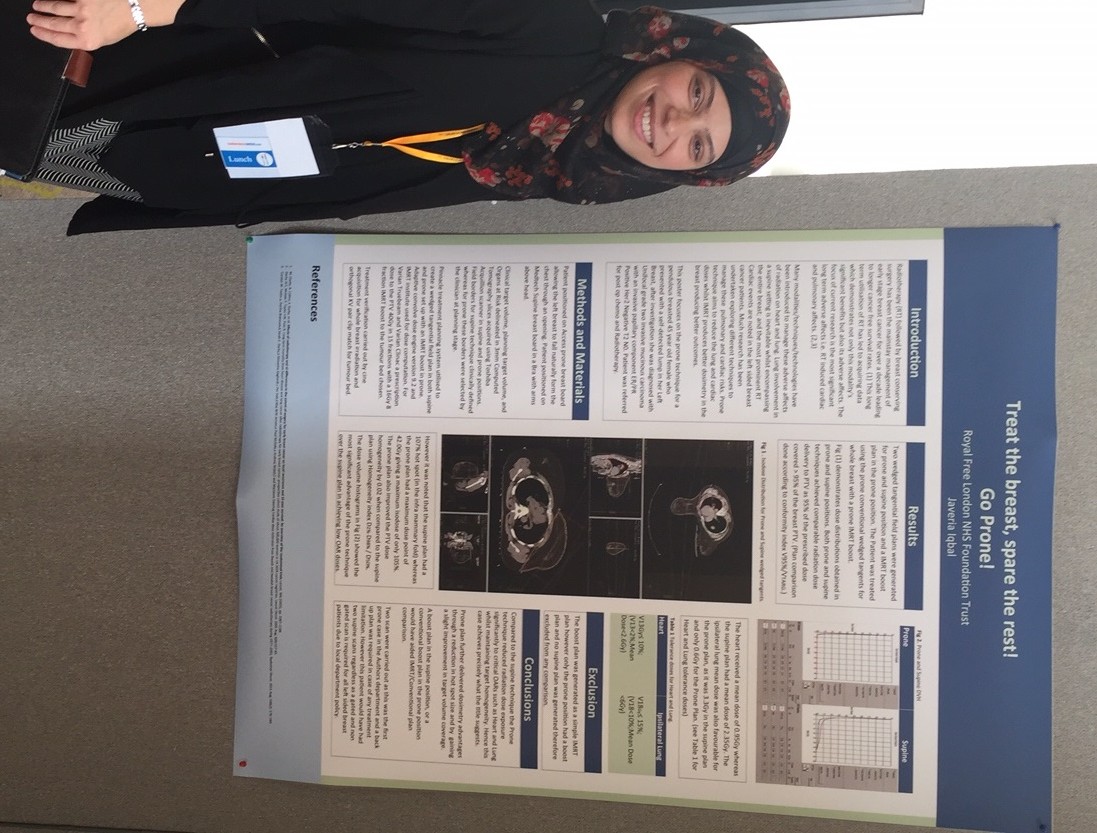Two new techniques for delivering radiotherapy to breast cancer patients could dramatically improve patients' quality of life, new research carried out at the Royal Free Hospital has shown.

The new methods are aimed at reducing the risk of radiation damage to the heart of a patient and improving the quality of life for those who have recovered from breast cancer.
Because of the position of the heart in the left-side of the chest, when patients receive radiotherapy to their left breast, the heart is at risk of receiving a dose of radiation. That can lead to an increased risk of cardiac-related health problems later in life.
The new techniques being trialled by the radiotherapy team, led by consultant oncologist, Katharine Pigott, are aimed at dramatically reducing the damage done to patients’ hearts.
Javeria Iqbal, advanced practitioner, who has been trialling the new techniques, said: “Because many more breast cancer patients are living longer we are now able to collect more data about them and focus research on reducing potential side effects.
“One of the new techniques already implemented involves patients taking a deep breath in while the radiotherapy is delivered. It is known as deep inspiration breath-hold (DIBH) and it creates a space between the heart and the breast receiving the treatment, which means the heart is less likely to receive a dose of radiation. However, not all patients can hold their breath for the required time – around 20-25 seconds.”
Patients for whom DIBH may not provide enough cardiac sparing may be suitable for an alternative technique which is also under trial. With prone radiotherapy, patients lie on their front instead of their back and the radiotherapy is delivered directly to the breast. This technique has already shown reduced radiation doses to the heart in comparison.
Javeria’s research on prone radiotherapy has been published in the Journal of Cancer Science & Therapy, and was presented at the World Breast Cancer Conference 2016.
She said: “When delivering radiotherapy it is important that the whole breast receives the radiation, but that other parts of the body are affected as little as possible.
“Although this technique is not suitable for everyone as not all patients can lie in that position, it can produce good outcomes in a specific group of patients so it warrants further research.
“This is about improving the quality of life for all our patients after their breast cancer treatment and we always work to find the best type of treatment for each individual.”
Ends
Image: Javeria Iqbal and her poster displaying her research findings
Notes to editors
About the Royal Free London NHS Foundation Trust
The Royal Free began as a pioneering organisation and continues to play a leading role in the care of patients. Our mission is to provide world class expertise and local care. In the 21st century, the Royal Free London continues to lead improvements in healthcare.
The Royal Free London attracts patients from across the country and beyond to its specialist services in liver and kidney transplantation, haemophilia, renal care, HIV, infectious diseases, plastic surgery, immunology, Parkinson's disease, vascular surgery, cardiology, amyloidosis and scleroderma and we are a member of the academic health science partnership UCLPartners.
In July 2014 Barnet Hospital and Chase Farm Hospital became part of the Royal Free London. Read 'A bigger trust, a better future'.
 Translate
Translate
